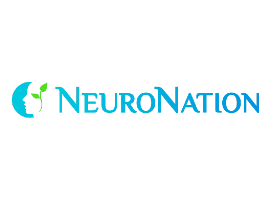We like to keep our bodies active, but why don’t we invest the same amount of care in our minds? Everyone tells us to go to the gym and exercise to stay healthy, but somehow the same necessity is not given to our brain’s health. Maybe we think that a little bit of reading or studying here and there is enough – but research shows that variation in our mental activity is the key to long-term success.
It is well known that physical exercise leads to a longer and happier life. So what about exercise for your brain? According to the latest findings in Neuroscience, your brain reaches its peak performance at 16-25 years, and thereafter cognitive functioning declines [1]. For most of us, these are not so great news. But the better news is that no matter how old you are or what your profession is, science shows that training with brain exercises can in fact benefit you. The key to success? Specifically tailored courses to meet your personal needs. Which is where we come in.
Personalized brain exercises
People often try to keep their brains active using Sudoku or crosswords. And while these are certainly all fun and games, they are unfortunately not very effective in training your brain. Science has come up with a far better way to stay mentally active: personalized brain exercises!
NeuroNation targets and challenges your memory, logic, attention, and verbal skills through a variety of brain exercises based on scientific research. With time you will get better at the exercises, which will positively affect your everyday life, as demonstrated by Dr. Sherry Willis, Professor at the University of Texas [2]. Willis found that with brain training, individuals became more efficient at performing everyday tasks of varying complexity – from writing a shopping list to operating technical equipment. She also reported that their memory improved and the enhancements lasted up to five years following the workout.
Brain training benefits everyone
But the best part is that brain training is for everyone. Recently, the extensive COGITO Study at the Max-Planck Institute demonstrated that training with brain exercises improves working memory for people of all age groups [3]. In total,101 young adults aged 21-30 years and 103 older adults aged 65-80 years participated in the study. Both groups underwent a total of 100 hours of training with brain exercises, focusing on working memory, processing speed and memory. Another study revealed that brain training can benefit your brain even after the first few signs of dementia have set in. Dr. Sylvie Belleville, Professor at the University Institute of Gériatrie de Montréal, has studied brain exercises as a preventative measure for the onset of Alzheimers Disease [4]. Belleville and her colleagues discovered that training with brain games can improve the memory of people with mild cognitive impairments, including those showing the first signs of dementia. These studies and others clearly suggest that your brain is trainable, if the training is tailored to your individual needs.
Ingredients for an effective brain training
There are a number of characteristics which make brain training effective. NeuroNation has incorporated all of them into the courses we design for you.
1. Personalized
When you sign up for NeuroNation, we ask you to take a test to assess your performance so we can personalize your training and make it unique for you. Studies have shown that in the beginning, you should be reasonably challenged but not overwhelmed by the brain exercises. Maximum results can only be achieved when you work at your personal best – so we tailor our course to fit you.
2. Goal specific
Each brain exercise NeuroNation offers is designed to target the specific brain functions you need in your everyday life. We will provide you with exercises that meet exactly these goals. With NeuroNation, your brain will be fit in no time!
3. Motivating
As with anything in life, practice makes perfect – the more you train, the better you become. We therefore recommend daily training sessions with our brain exercises of around 15 minutes. Motivation is the magic word here. Try getting your friends and family to join you and see who gets the higher score. Having someone to train with will make it that much more motivating. Brain training is beneficial for all ages, so anyone can join you – and a little bit of competition never hurt anyone.
4. Challenging
Studies have shown that if a task does not increase in difficulty, your brain will become bored and start to automatise the process. So after a while, you will not be challenged anymore. The more you play Sudoku, the better you get, but your brain is no longer challenged once you get good at it. This is because the brain restructures itself – mastering a challenge and automatising it to be ready for the next one. Although this is great for tasks we have to do on a regular basis, such as driving a car or riding a bike, your brain needs new challenges to stay fit. The level of our brain exercises increases with each game you play, to keep your brain challenged at all times and working at its peak performance.
Conclusion: Your brain can be trained
Intelligence is not a fixed characteristic that you are simply born with. Here at NeuroNation, we work hard to keep your brain on its toes, to ensure that you can reach your fullest potential. Whether you want to improve your memory, become more intelligent or have a better attention span – we are here to help you. Give it a go and start training with us today.


